
Sam McDonald
Account Director at Prosple
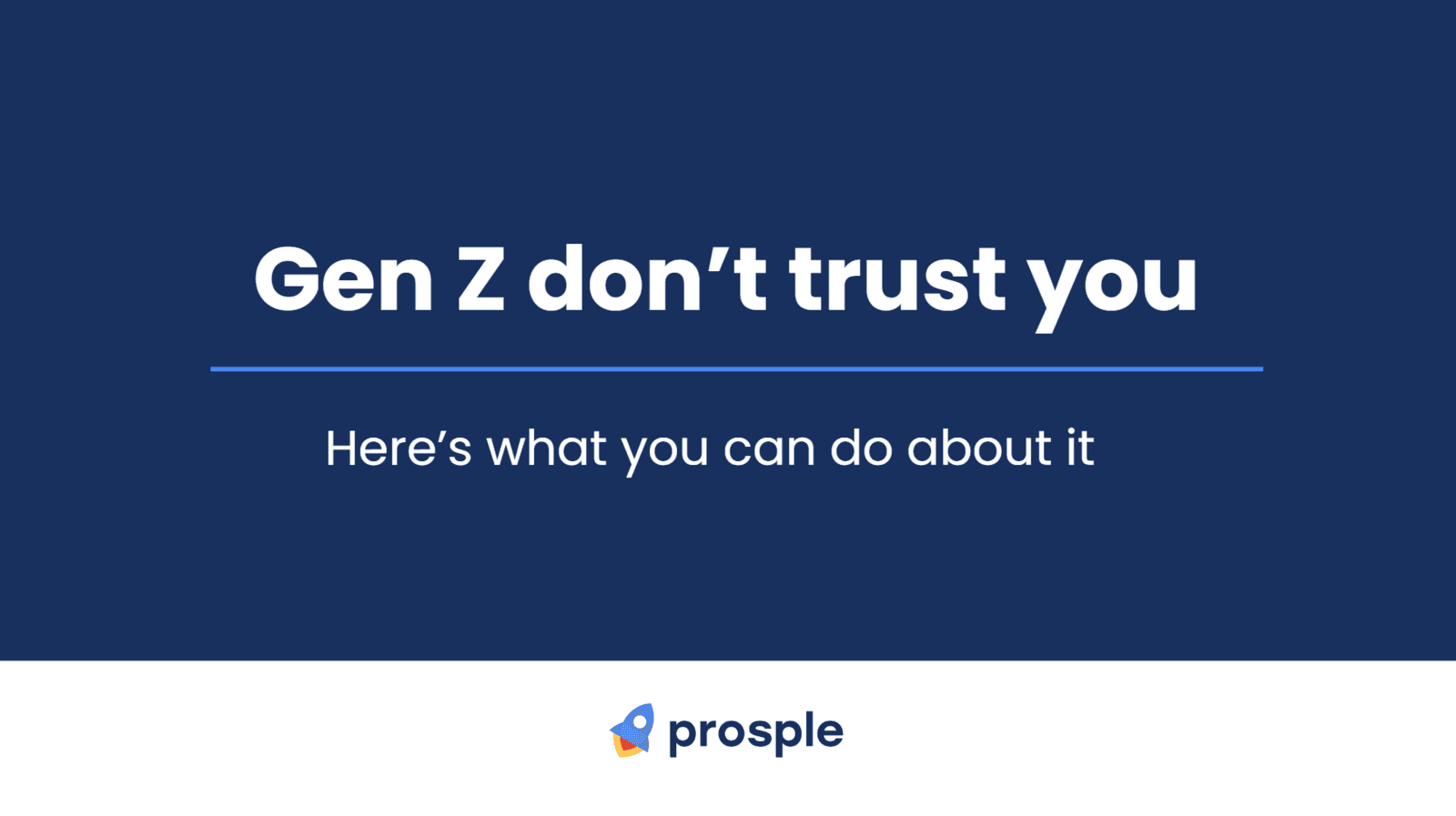
Gen Z is the most sceptical and mistrustful generation to date. And it’s no wonder – they’ve grown up in a world where:
University degrees no longer guarantee a secure future
Housing and education costs have skyrocketed
Misinformation and AI-generated garbage have taken over the web
The climate crisis looms as an existential threat
Then just when they thought they'd seen it all, COVID stole what should have been the best years of their lives, leaving them anxious, isolated and even more disillusioned.
What does this mean for you? And what can you do about it? Let’s dive in!
1. Gen Z don’t trust you
2. Introducing graduate-generated content (GGC)
3. Three types of GGC (+ our best tips)
4. But …
...'Will my grads actually make content?’
...'How do I get my grads on board?’
...'What if their content isn’t great?’
5. Let's recap
6. Appendix
Gen Z don't trust you
Gen Z don't trust you – and by 'you', we mean 'us' – companies, institutions, established brands.
The majority of Gen Z believe businesses only care about making money – and who can blame them, especially after countless scandalous corporate headlines over the last few years.
But it’s not just businesses. For Gen Z, no one gets a free pass - not the government, not the media, not even platforms designed to help them like Prosple. They're questioning everything.
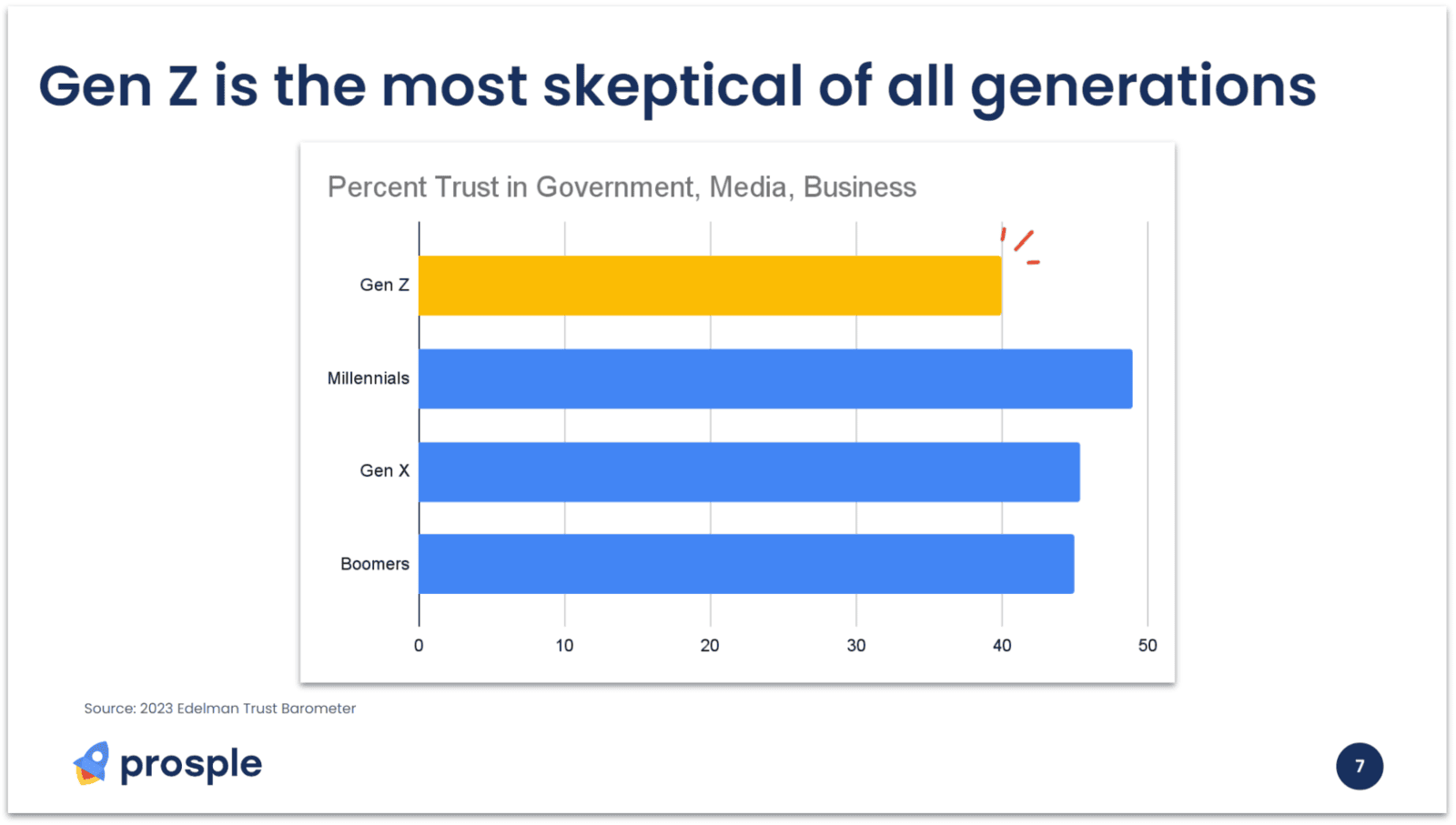
Amidst this distrust, how can we position ourselves as the kinds of employers they want to work for AND stay loyal to?
The good news is there is someone Gen Z trusts – your grads.
It's why many of you bring grads to career fairs, letting students hear what it's like to work at your organisation straight from the horse's mouth.
What we want to propose is bringing that career fair dynamic online. Why?
Well, when students are considering whether to apply to a job, they’re 2x more likely to refer to things like online reviews and social media than your official website. So if your grads aren’t representing you online, you’re potentially leaving a lot of talent on the table.
Introducing graduate-generated content (GGC)
Graduate-generated content (GGC) is when grads share authentically about their workplace online – whether that’s through social media, discussion forums, or online reviews.
But before we get into the details, we need to understand what lies at the heart of any GGC – your graduate value proposition, that is, the unique value you offer to your grads. If you have a solid value prop, GGC follows.
To give you an idea of how this works, let’s look at two examples from Prosple.
How graduate value propositions drive GGC
Example 1: Elliott (An account manager at Prosple)
In his free time, Elliott posts about his life working remotely from Bali.
When asked what motivated him to start sharing about his experiences online, he said:
‘I think it's because working fully remotely was quite new and exciting!’
Example 2: Ben (Product manager at Prosple)
It's not just Elliott – we've also got Ben, who routinely posts about his remote worker life across his social channels.
One of his recent videos of him living it up in Greece got over 45 thousand views!
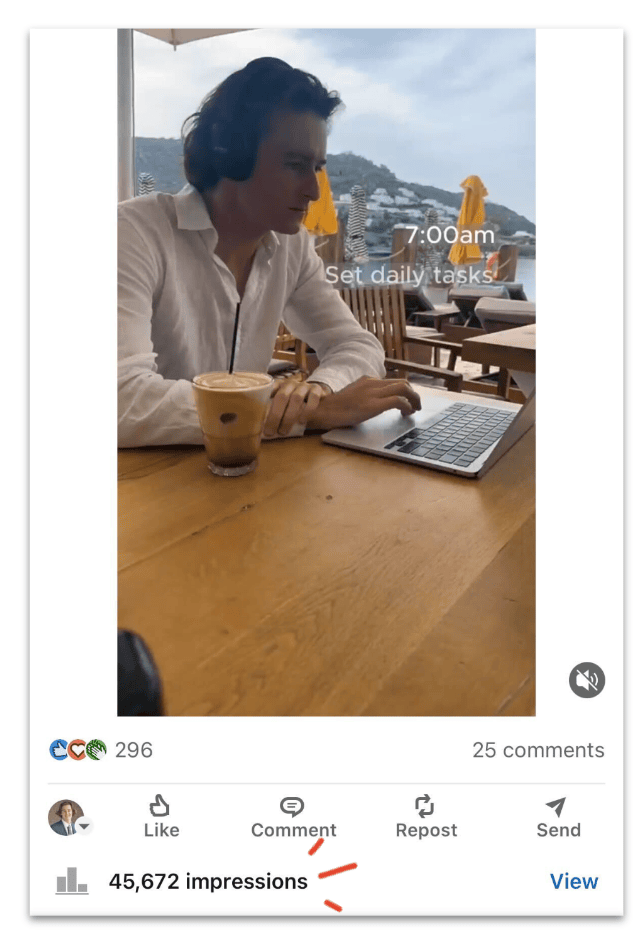
He’s even started a website where he shares his experiences as well as the stories of other young remote workers.
Why does he do this?
‘Mainly because I love my job and the flexibility it offers. I want to show people you can build a career and do amazing things at the same time with the right opportunity’
Note that all of these posts have all come of their own free will. No one at Prosple has asked them to do this.
Yet, this sort of content consistently gets brought up in our interviews (‘I came across Prosple in so-and-so-’s social media post’). It’s even played an instrumental role in some of our recent intern hires.
What this shows is that when you’ve got something your grads want to brag about, the content flows naturally.
In our case, that ‘something’ is our full-remote work policy. In your case, it might be a unique benefit that none of your competitors offer.
For example, BAE Systems offers the option to work a 9-day fortnight, meaning that their employees get to take every other Friday off. You can bet their grads are telling all their friends about this – they’re certainly bringing it up in their reviews!
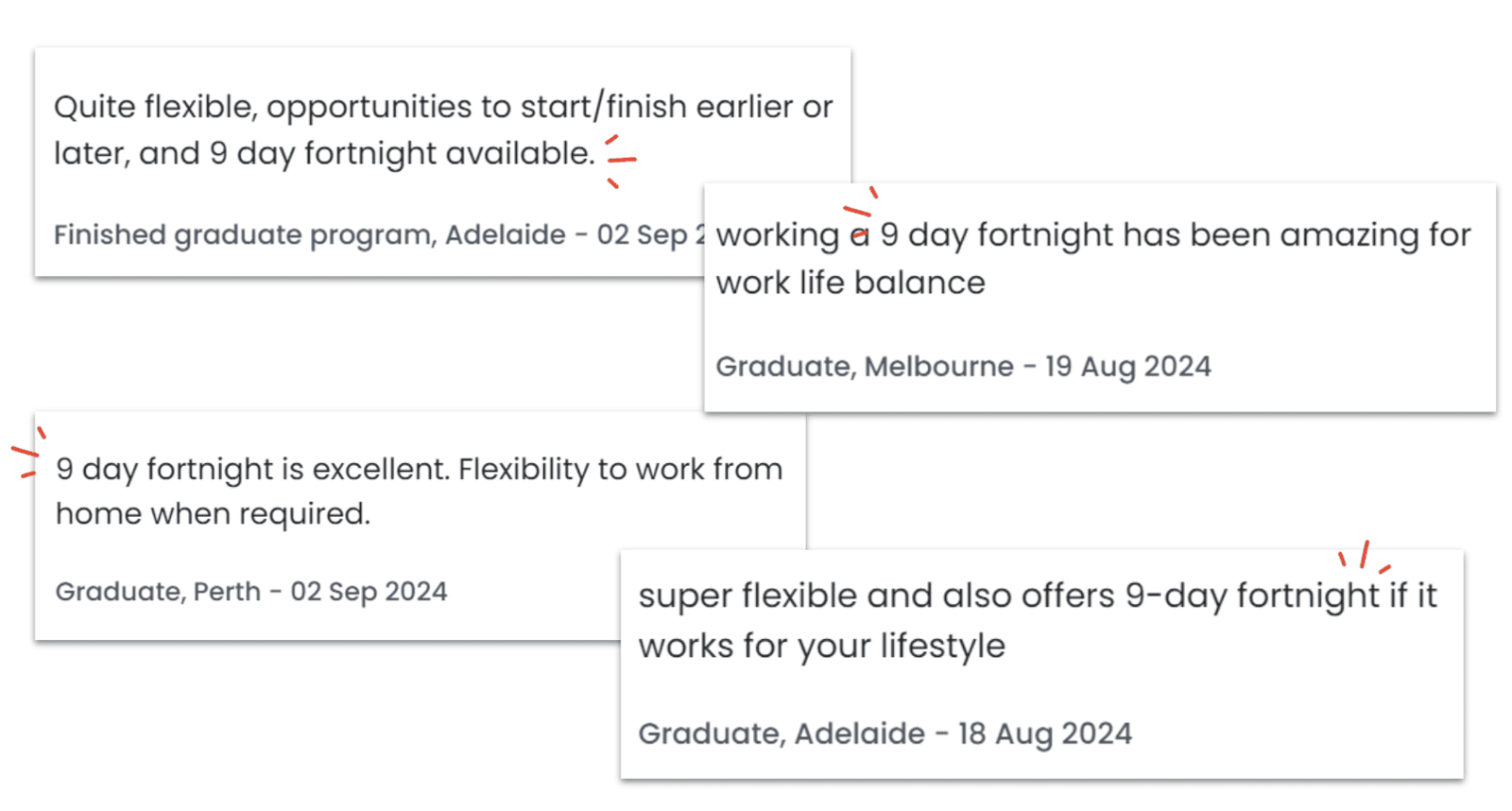
What if I don't have a graduate value proposition?
If you don’t have a graduate value proposition (or don’t know what it is yet), make that your top priority – and make sure it resonates with key areas that Gen-Z care about!
It doesn't need to be flashy, but whatever it is, make it a cornerstone of your culture and recruitment process.
Three types of GGC (+ our best tips)
Now let’s go over three key types of GGC and our best tips for each of them.
1. Online reviews (the good, bad, and yes – the ugly)
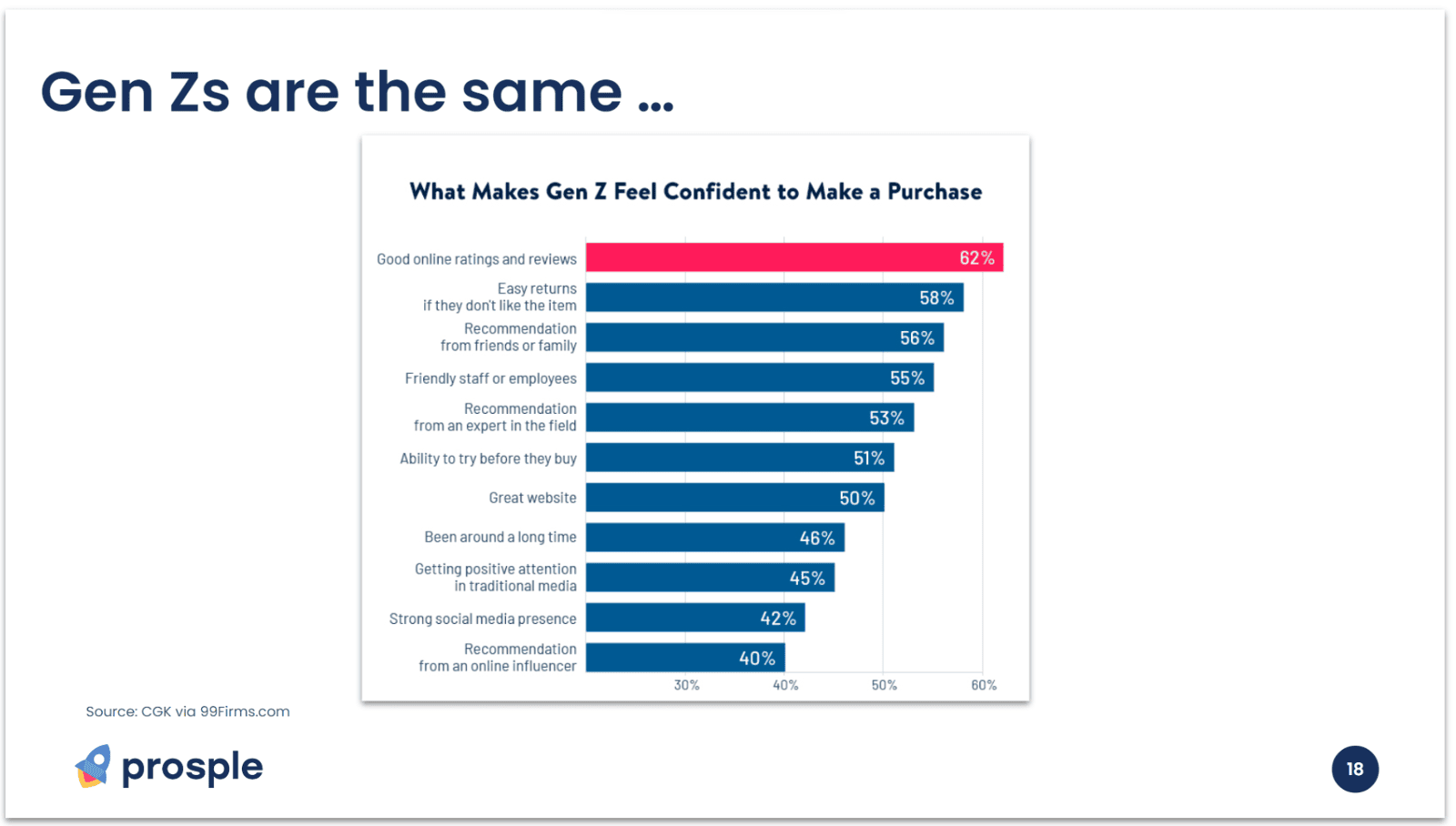
Tip #1: Real is the new perfect
Here’s something a student recently told us:
‘The reviews [on Prosple] are all positive, which makes me a bit sceptical. I personally use Glassdoor for balanced feedback since it includes both positives and negatives.’
Fortunately, this student did still get their job through Prosple. But the fact that they had to go to another platform for their ‘balanced feedback’ is a problem.
As this quote shows, if a student comes across your profile and it doesn’t feel genuine, they won’t trust ANY of your reviews. So you need to have both good and bad reviews. And not just the bad but the ugly.
In the long term, this ‘warts and all’ approach is better for you too, because you’ll set realistic expectations and attract the right type of people to your organisation.
To cite an example from our business, not everyone is a huge fan of remote work, because it makes it hard to connect with the wider company. So when you go on our profile on our site, you’ll see some negative reviews that talk about this.
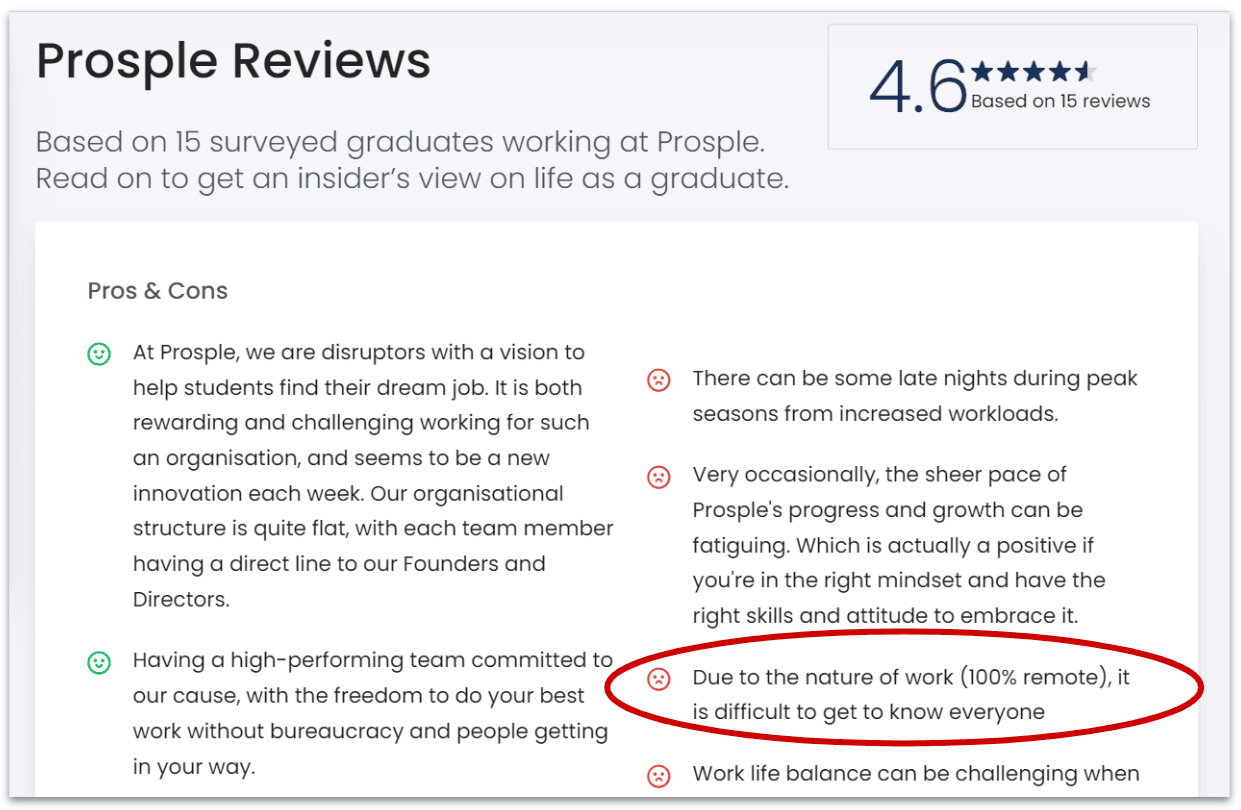
If we hid reviews like this – or tried to make our social interactions out to be more than they actually are – we’d attract people who would end up disappointed and leave. And we all know how expensive it is to hire people just to see them leave…
In other words, reviews help candidates self-select and choose where they really want to work.
So let’s get comfortable with the negatives, because without them, there are no positives.
Tip #2: Reviews are opinions, not facts
Take a typical request that we receive to remove a review.
- A grad complains about their salary.
- The employer says, ‘Take that down. Our salaries are market-rate, so that review is false’
But the reality is, that’s how they feel. And there’s nothing factually inaccurate about a feeling.
Just imagine if every restaurant with a bad review on Google were able to have them taken down because they disagreed with the customers opinion. None of us would use Google reviews if that were the case.
Now - should the restaurant - or the employer, for that matter - have the right to reply?
Absolutely! And that’s a direction that we’re taking at Prosple.
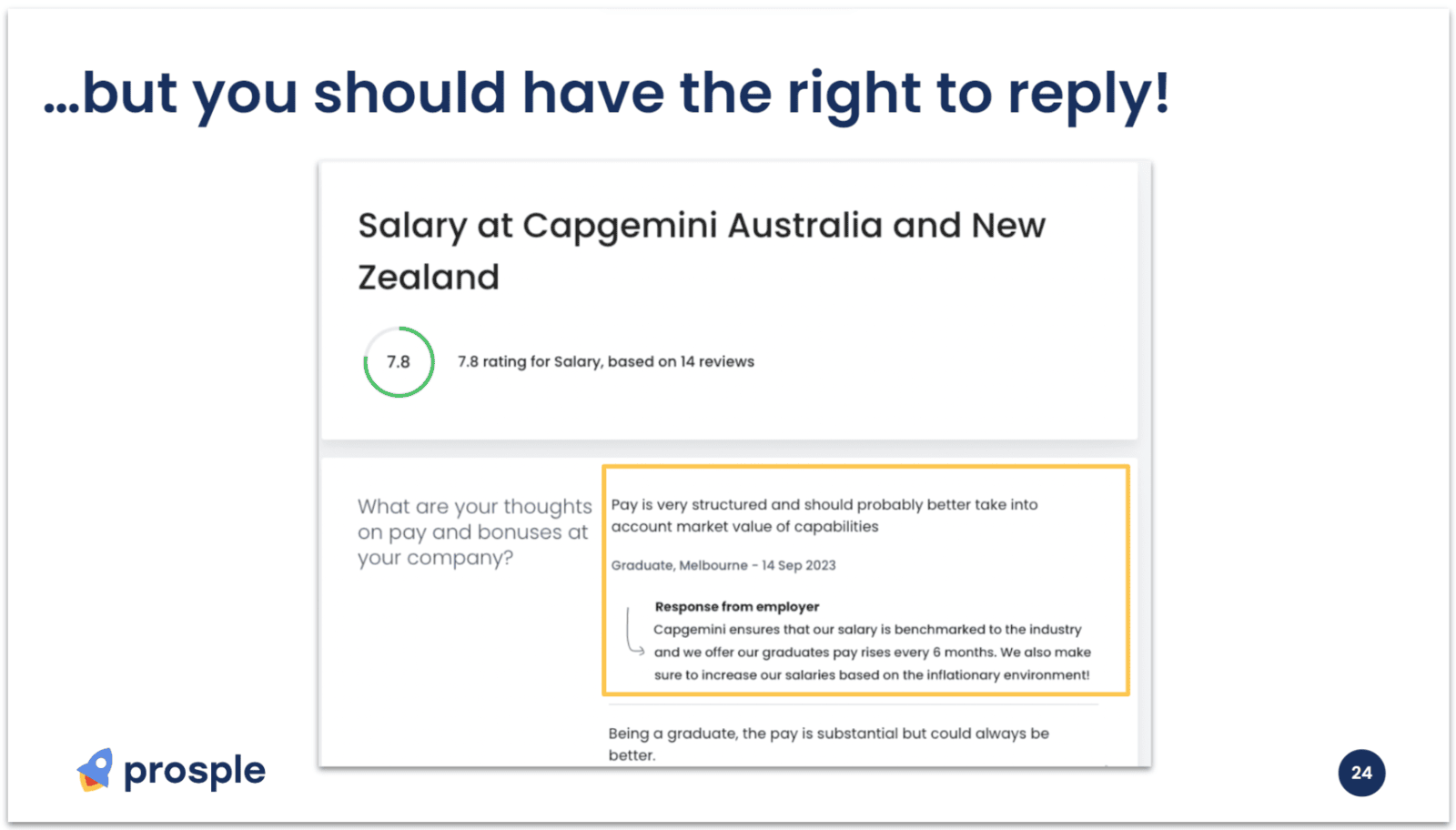
And the best part is, job seekers would benefit from seeing your response. According to Glassdoor, 80% of job seekers say their perception of a company improves after seeing an employer respond to a review.
2. Forums – where the real talk happens
As we’ve covered, the internet is drowning in AI-generated content these days.
Despite this, Reddit - the world’s largest forum - is seeing a boom. We're talking a 39% jump in traffic since last year, with over 52 million people logging on every day, making it one of the top 10 most visited sites in the world - beating even Tiktok.
What does their growth tell us? People are hungry for authentic, human-to-human conversation.
This trend is why here at Prosple, we’ve started our own forum for students and grads. Not the first forum in the graduate world, but hopefully one designed more for the 21st century.
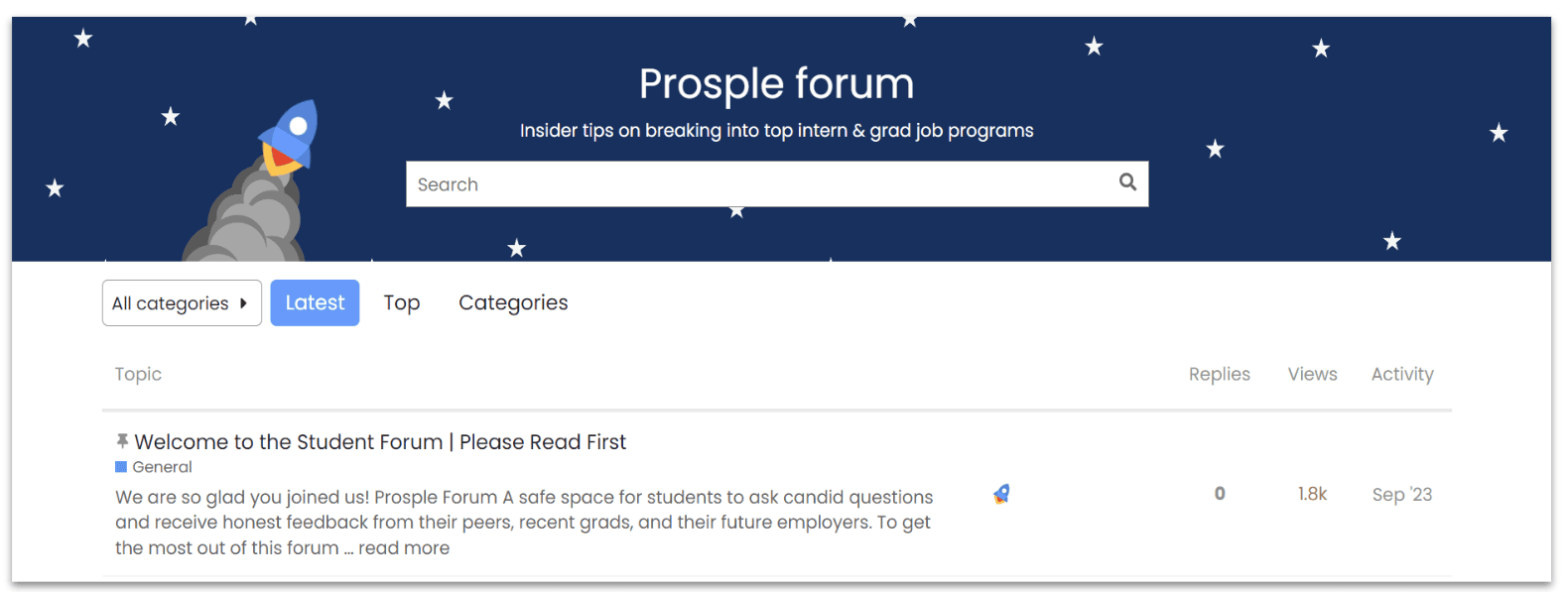
Since its launch in March, we’ve reached over 15,000 monthly users and these numbers are only climbing.
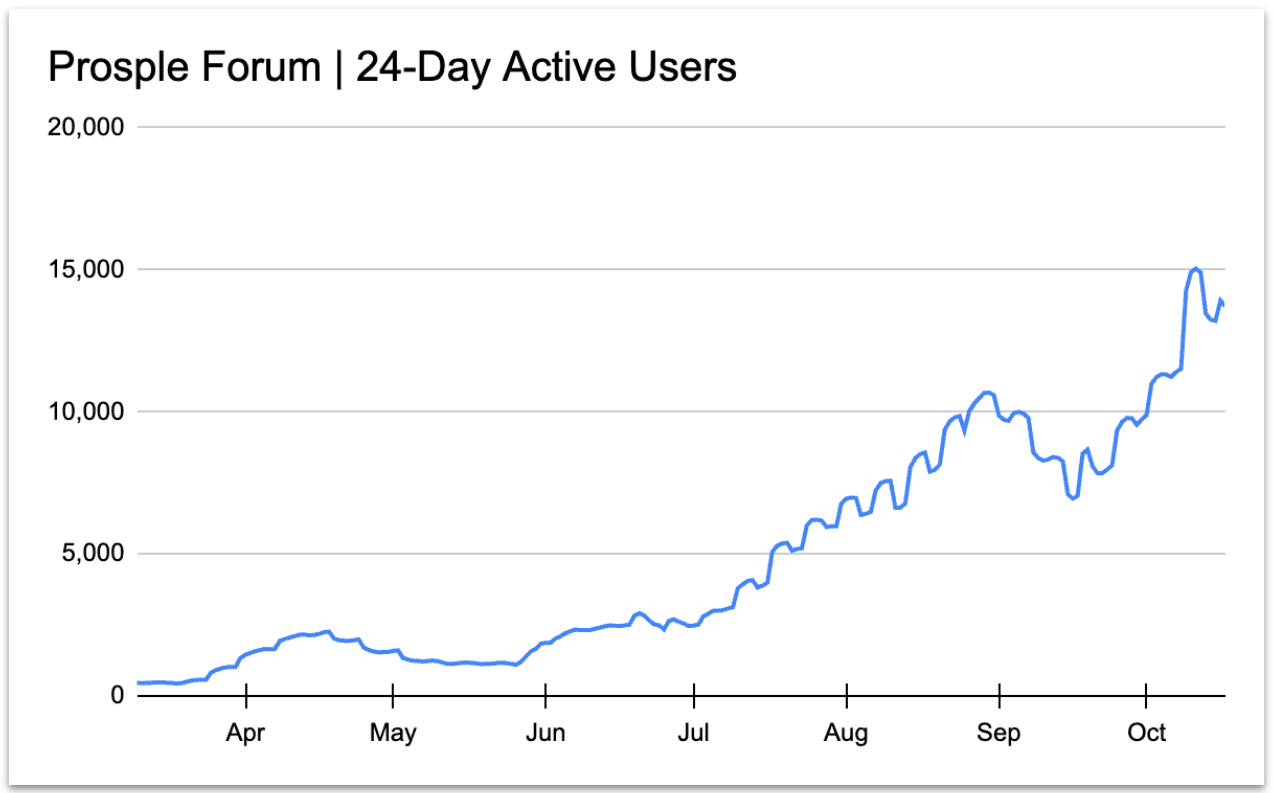
Tip #1: Get comfortable with forums
If you’re thinking, ‘What if people say bad stuff about us on these forums?’, you’re not alone!
Forums are the wild west of the internet - you can't control what people say or how they say it. It's enough to give any PR team nightmares.
But the thing is, your employees are already talking about you online. A recent global survey showed 57% of Gen Z are talking about their employer online at least once a week, more than any other generation.
So this transparency train? It's already left the station. We can either jump on board or get left behind.
Here's the silver lining – at least these conversations are happening somewhere you can actually join in.
Tip #2: Join the forum!
Around 20 employers are already on our forum answering questions or addressing concerns from students.
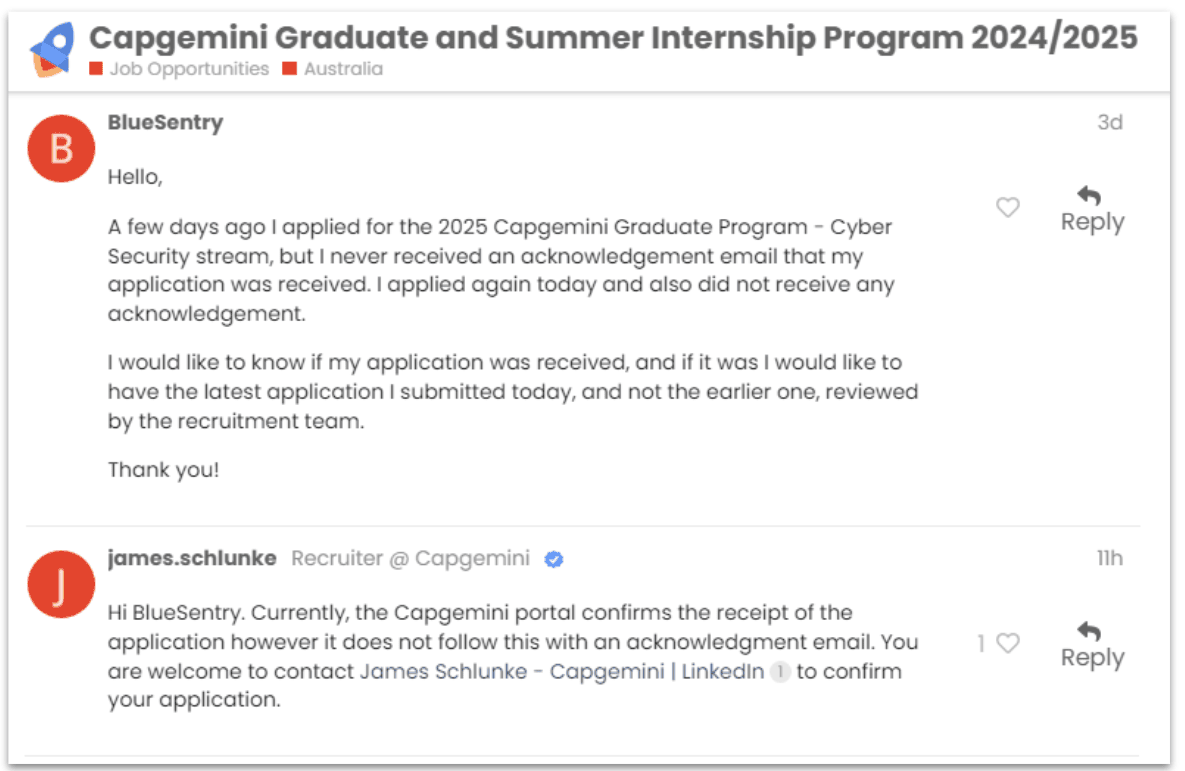
Engaging students on the forum is a great chance to show you're listening and that you're not afraid to engage in honest conversations.
Hopefully it also gives you the opportunity to address a question once, rather than over and over again in your email inbox.
Tip #3: Get your grads on the forum
Already on our form we can see grads from Glencore and Bain, Lendlease, and the Australian Parliament jumping in to help their peers.
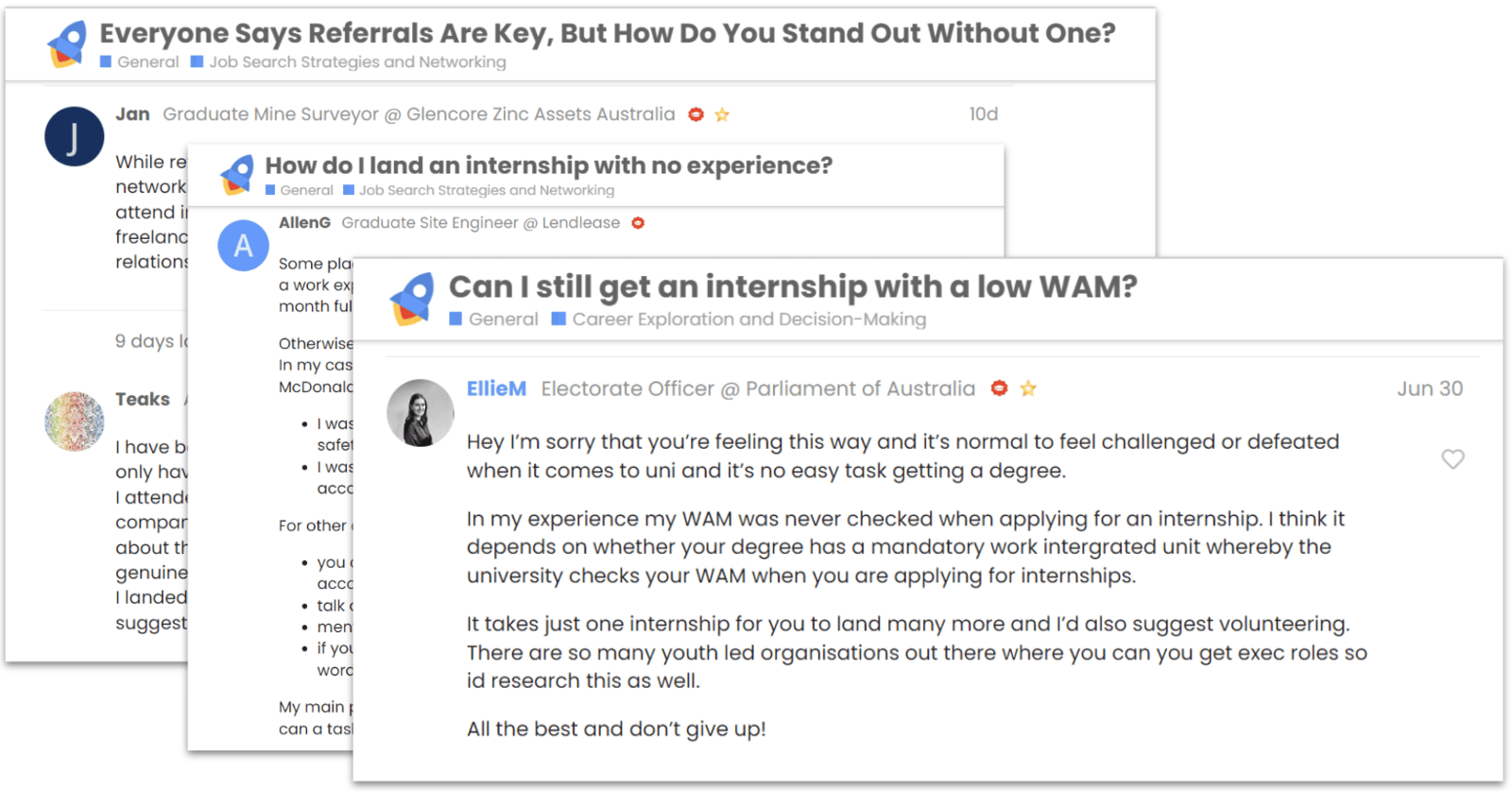
3. Social media (no dancing required)
Tip #1: Don’t be try hard
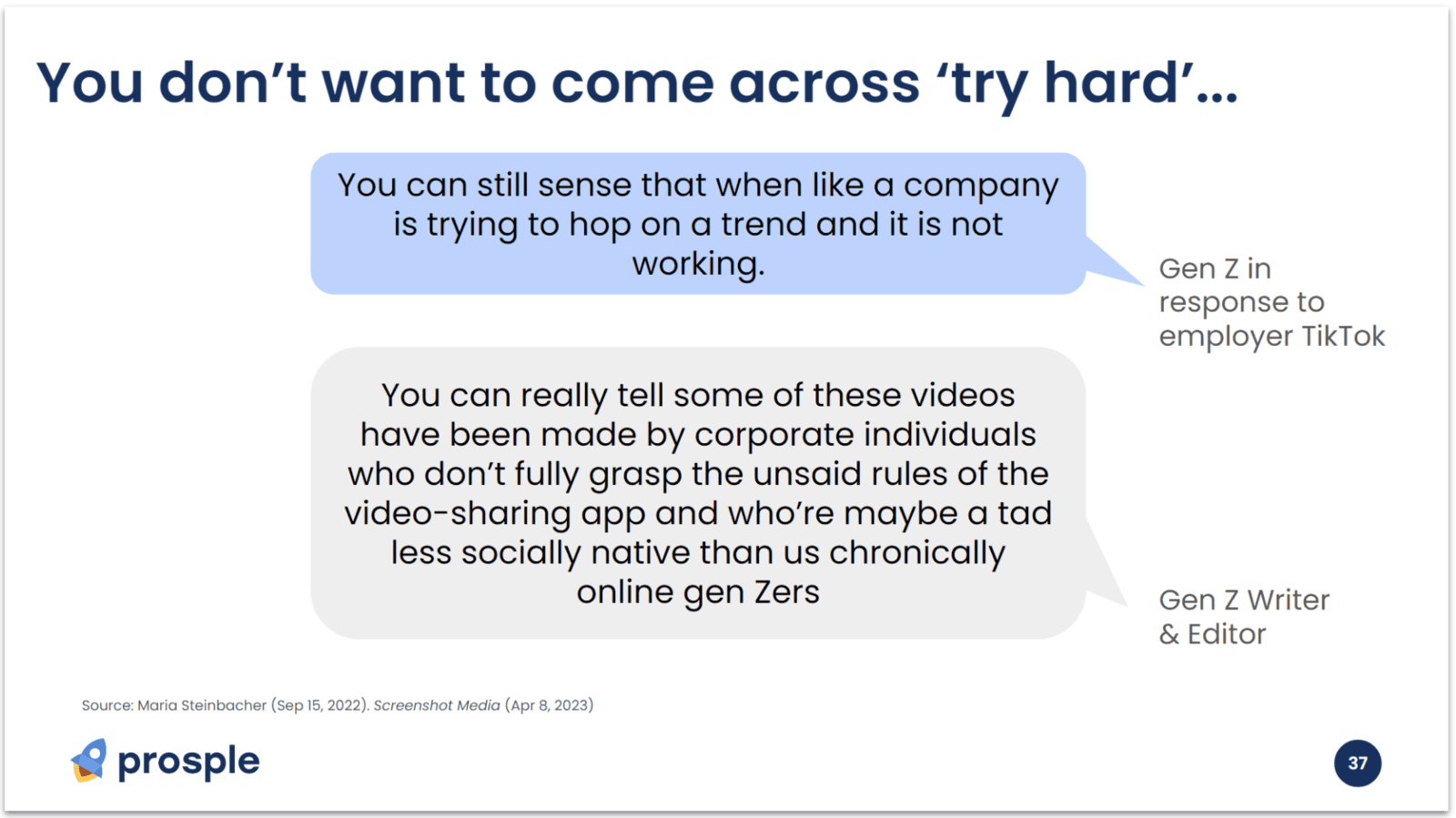
Tip #2: Don’t force your employees to post
Here’s another trap to avoid – forcing your employees to post on social media. Some employers tie social media posts to performance reviews.
The thing is - you can't force authenticity.
If a grad feels they are being forced to make your content, they're not going to be their genuine selves. In fact, they’ll look like they're being held hostage.

We've all seen those sorts of videos before where grads desperately try to say the ‘right’ things, often resorting to overproduced or even AI-generated scripts that they read off robotically.
It's painfully awkward and a massive turn-off for the very audience you're trying to attract.
The secret sauce? Let your people be themselves. Give them the freedom to represent the company in a way that feels natural to them. That's where the good stuff happens.
But ...
… ‘Will my grads actually make content?’
Now, you might be thinking ‘This sounds great, but I’ve got a hard enough time getting my grads to attend careers fairs. How many of my grads and interns will actually step up to the plate?’
Luckily, that’s good news. As anyone who’s run an employee advocacy program will tell you, it’s better to start small and focus on those adding the most value.
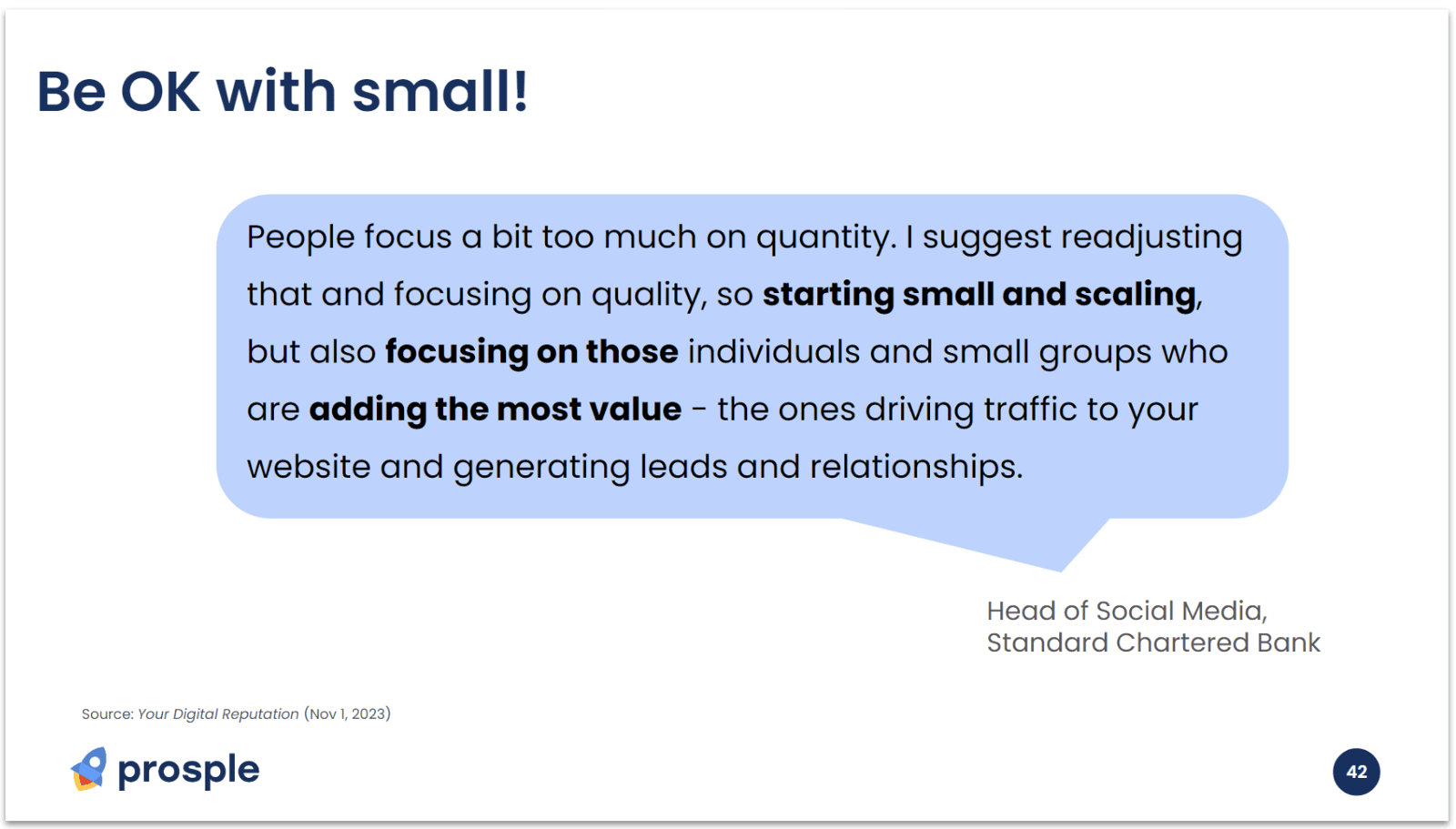
Remember, we're aiming for authenticity here. We want content that genuinely reflects your company culture and values. A small group of enthusiastic sharers will go a lot further than an army of reluctant posters.
And with 49% of Gen Z sharing original content about their employer weekly, you might just find more volunteers joining the party. It's all about creating that positive snowball effect. Aim for quality first, and quantity will follow.
… ‘How do I get my grads on board?’
Now you may be wondering: ‘How do I actually convince our grads to start creating graduate-generated content?’ Here are our top tips.
Tip #1 Assure grads you’re looking for honesty
This means being clear that both good and bad opinions are welcome. It won’t always be pretty, but we need to learn to let go and trust that they’ll use their common sense.
Tip #2 Allow grads to stay anonymous
Not everyone wants to be the face of the company – and that’s fine.
If you have grads who’re more comfortable being a voice:
- Ask them to write reviews.
- Get them on our forum.
- Suggest they make anonymous social media content, like this anonymous ‘come to work with me’ TikTok.
Tip #3 Lower the barriers to entry
For instance, if they're worried about the time commitment, make it easy for them by providing assets and prompts. This TikTok from a L'Oreal gradgot over 25k views via simple prompts that guided him, while keeping the content in his authentic style and voice.
Tip #4 Celebrate those who participate
Your grads are taking time out of their day to make content! Celebrate them publicly with company-wide recognition or privately during performance reviews.
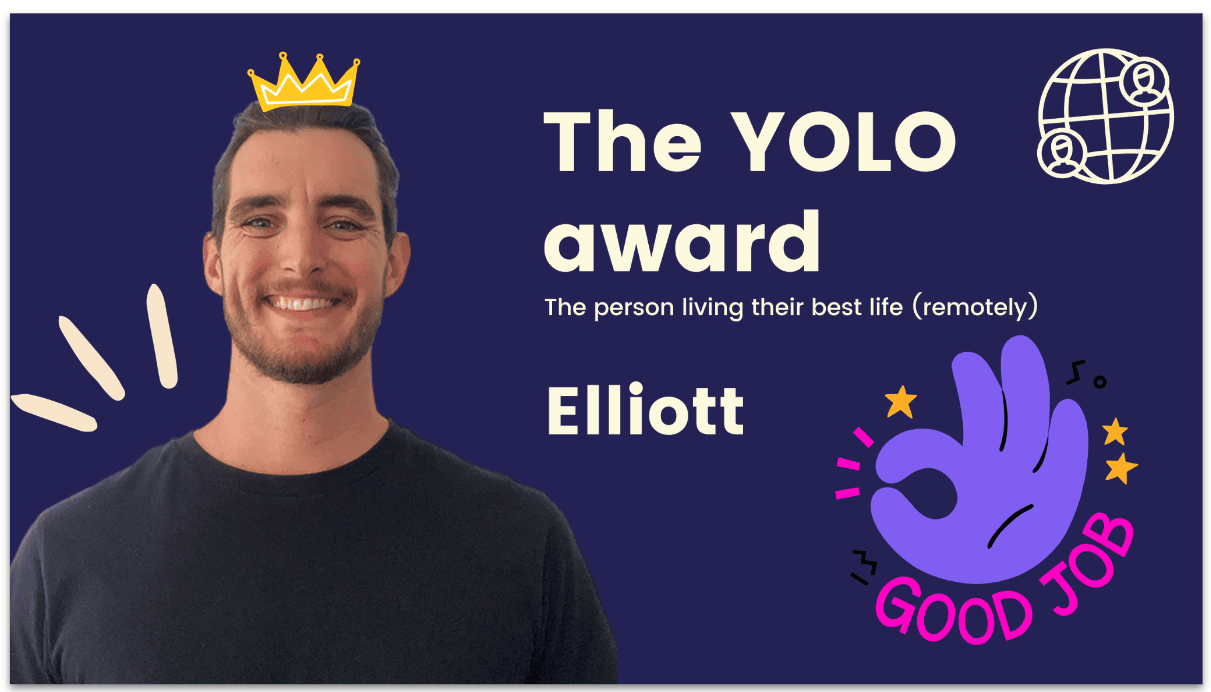
At Prosple we do this:
- Informally through call outs like this award from our Christmas party
- Formally in performance reviews, recognising these as excellent examples of a team member’s ability to communicate.
… ‘What if their content isn’t great?’
First assess whether you’re the right target audience – oftentimes, grad-generated content won’t be our cup of tea – that’s fine and as it should be!
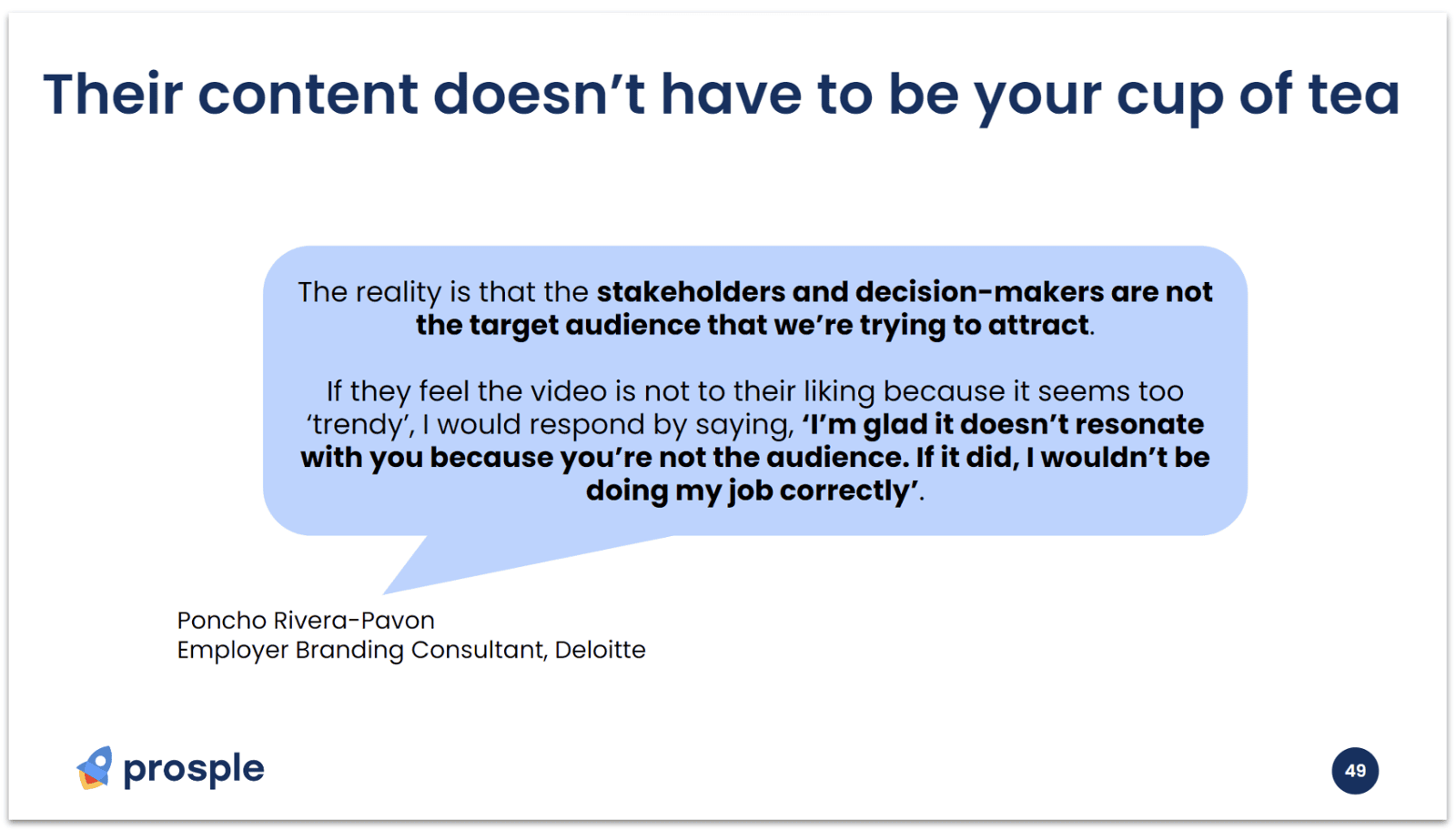
And if it’s really not great, remember that GGC doesn’t have to be 100% raw or individually-generated. It can be edited and guided.
For example, we often interview Gen Zs instead of having them make content themselves. These ‘Gen Z interviews’ happen to be some of our most popular content - collectively being viewed 3 million times organically on just our Australian Tiktok channel alone!
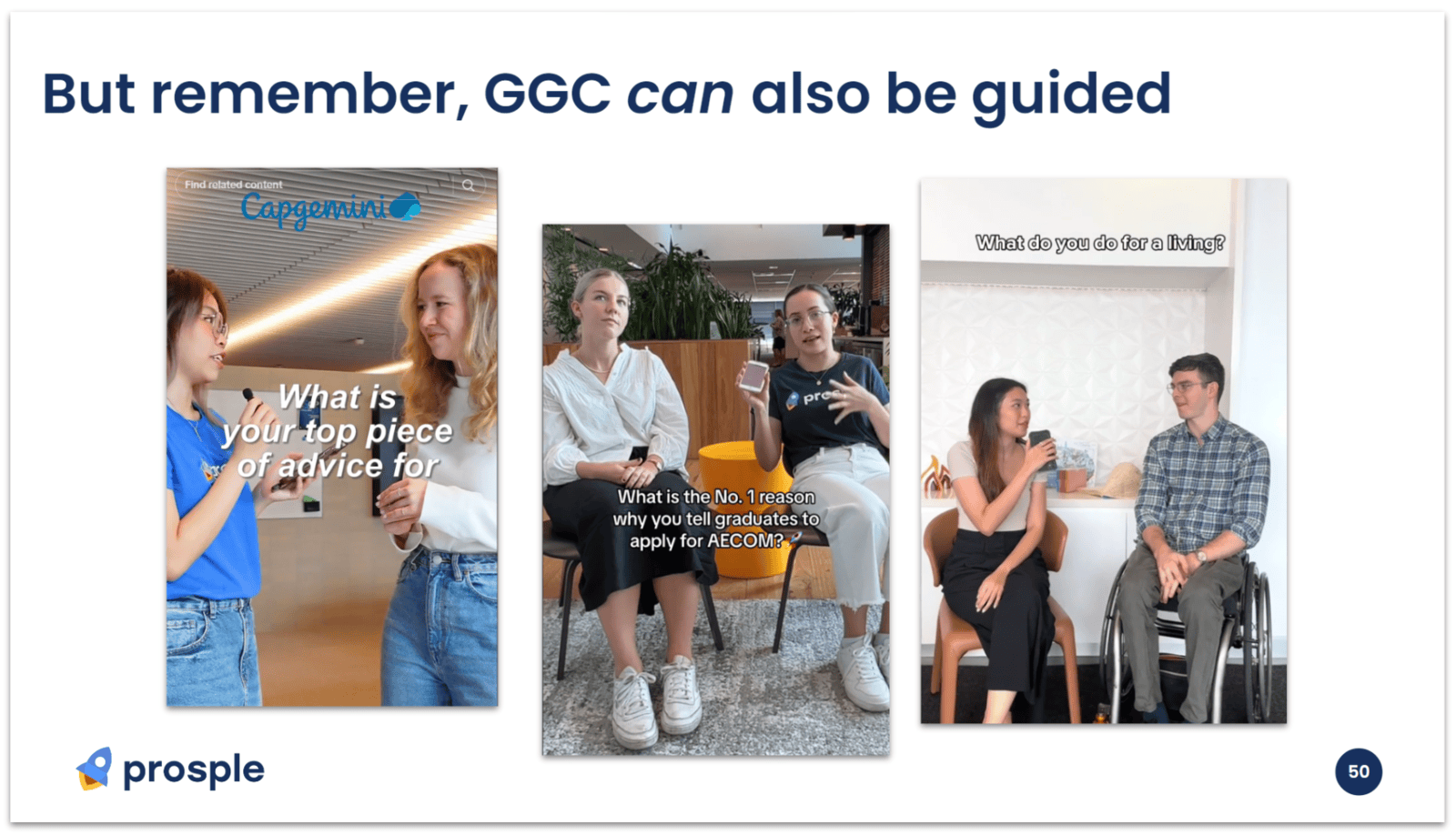
The main thing is that GGC should be authentic and voluntary.
Let’s recap
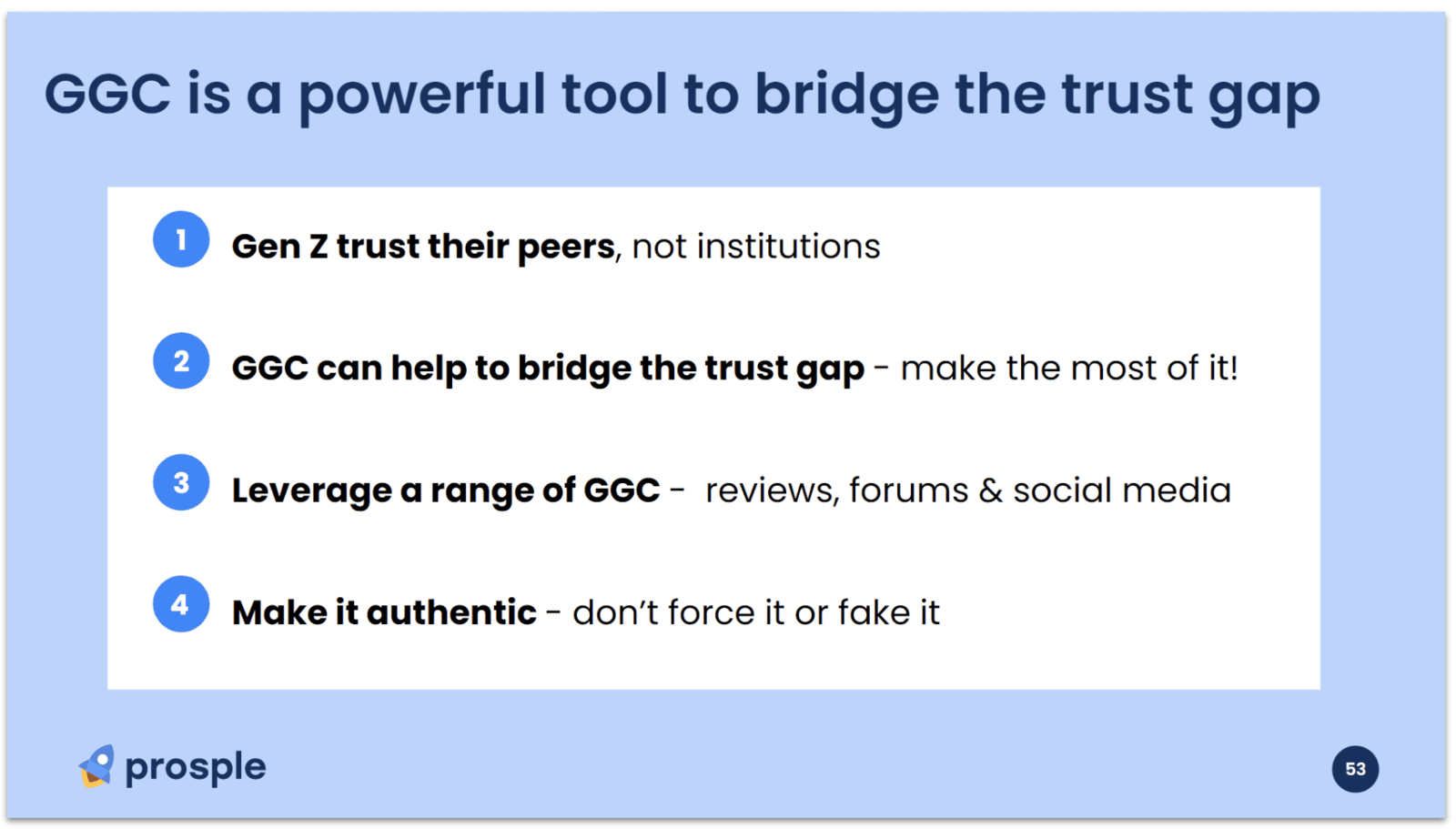
Gen Z's trust in institutions, including businesses, is at an all-time low. But they do trust their peers.
Graduate-generated content (GGC) is a powerful tool to bridge this trust gap and authentically showcase your company culture.
Successful graduate-generated content comes in many forms - from honest reviews to forum discussions and social media posts.
Whatever the case, GGC needs to be authentic. It can't be forced or faked - that’s what makes it such a powerful recruitment tool.
And it all starts with having great things to share.
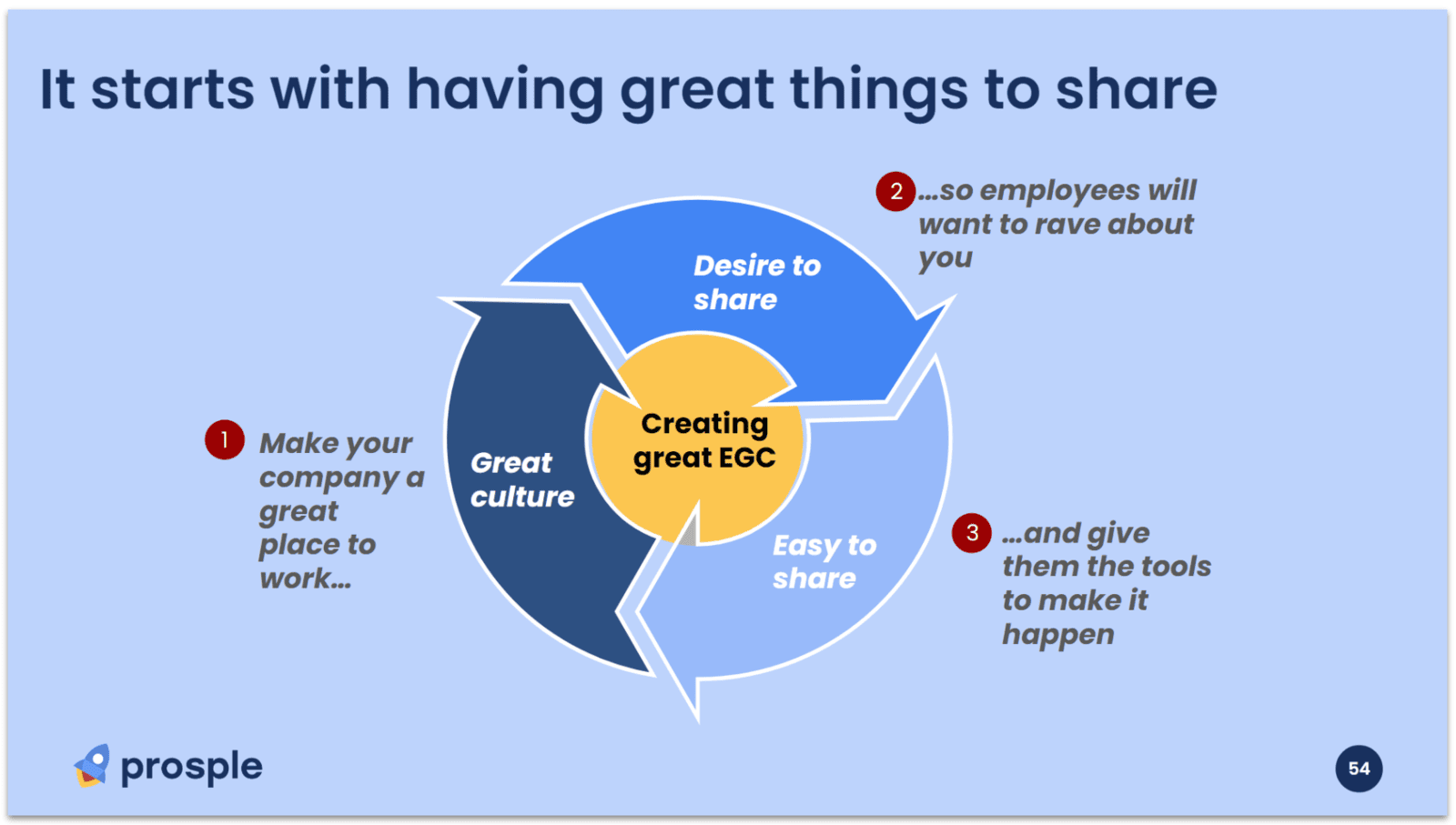
Graduate-generated content must stem from a genuine, positive company culture. – take a hard look at your programs. Are you creating an environment that your employees want to rave about?
If you are, or the more steps you take towards this, employees will want to rave about you
And to get them even more involved, make it easy for them to share their experiences. – Are you empowering them to share their genuine experiences? If not, that's where your journey begins.
Appendix
Slide deck
This article was originally a keynote speech delivered at the 2024 Australian Association of Graduate Employers (AAGE) Conference. Here are the presentation slides.


